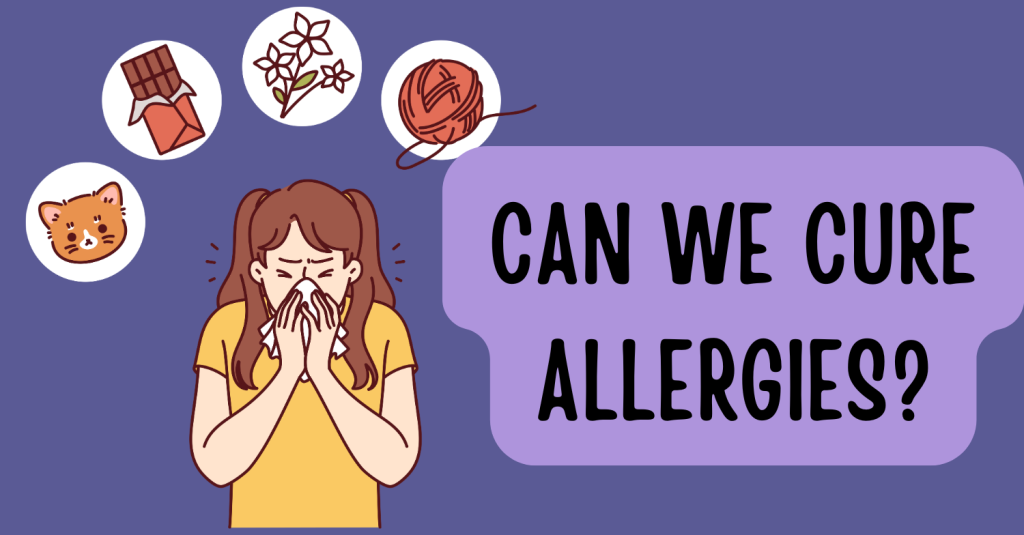By Joanne Fisher, BodyTalk Birthkeeper
Allergies in children can be incredibly disruptive, not only to their health but also to their overall well-being and quality of life. Conventional treatments often focus on symptom management—whether through antihistamines, avoidance strategies, or other medical interventions. However, a growing body of evidence suggests that the mind-body connection plays a crucial role in how allergic reactions manifest. This is where BodyTalk, a holistic health modality, can offer a new perspective and effective solutions by addressing the deeper causes of allergies through mind-body integration.
Understanding Allergies as a Mind-Body Phenomenon
At its core, an allergy is an overreaction of the immune system to substances that are typically harmless, such as pollen, food, or pet dander. From a physiological standpoint, the immune system mistakes these benign substances for threats, releasing histamines and other chemicals that cause inflammation, itching, sneezing, and other allergic symptoms.
However, the immune system doesn’t function in isolation. It’s deeply interconnected with the nervous system and emotional states, meaning mental and emotional stressors can significantly influence how the immune system responds. For example, when a child is under emotional distress or dealing with unresolved trauma, their nervous system may stay in a heightened state of alert, which can exacerbate immune responses, causing the body to overreact to allergens.
A well-documented case illustrates this mind-body connection perfectly: a child who, while eating grapes, witnessed his dog get hit by a car. The intense emotional trauma of witnessing this event, combined with the act of eating grapes, caused the child’s body to associate the grapes with the traumatic experience. From that point on, the child developed an anaphylactic allergy to grapes, even though grapes themselves were not inherently harmful. The immune system, influenced by the child’s emotional state during the traumatic event, began to perceive grapes as a threat.
This demonstrates how external stressors, especially those linked to trauma or intense emotional experiences, can trigger the immune system to create a reaction to otherwise harmless substances. The immune system, responding to the brain’s heightened alertness during trauma, learns to overreact to triggers present at the time—often without conscious awareness.
The Power of Consciousness: Healing Allergies from the Inside Out
In BodyTalk, it is understood that consciousness is all that is needed to heal. When the body becomes aware of the root cause of an allergic reaction—whether it stems from a traumatic event, emotional stress, or a miscommunication within the body systems—the immune system can recognize that its overreaction is unnecessary. The simple act of bringing awareness to why the body developed the allergic response in the first place often allows the body to “realize” that it is reacting unnecessarily.
This concept highlights the innate wisdom of the body. When consciousness is brought to the forefront, the body can understand that its immune response to an allergen, like grapes or pollen, was “silly” or misplaced. With this realization, the body often naturally stops overreacting to the allergen. The key is awareness: once the body understands the true reason for the immune response, healing can occur. This is why many people find that once they consciously process a past trauma or emotional event linked to their allergy, the allergy itself begins to dissipate.
Stress in Utero: The Foundation for Allergies
The mind-body connection also extends to the prenatal period, where a baby is highly attuned to the mother’s physical and emotional state. If a pregnant woman is stressed, anxious, or experiences emotional turbulence, it can affect her unborn child, creating long-term health implications. The baby, sharing the mother’s biological and emotional environment, absorbs these stress signals, and the developing nervous system can become wired for heightened sensitivity or reactivity.
For example, if a pregnant woman experiences stress while eating certain foods, the baby’s immune system may imprint that particular food as a potential threat. This can manifest after birth as an allergy or food sensitivity, despite no inherent danger in the food itself. Essentially, the immune system becomes programmed to react defensively based on the mother’s experiences, setting the stage for allergies later in life.
How BodyTalk Works with the Mind-Body Connection to Address Allergies
BodyTalk is a system of healthcare that taps into the body’s innate wisdom to identify areas of stress, imbalance, and miscommunication between different bodily systems. It uses a combination of biofeedback, light tapping, and techniques to improve communication between the mind, body, and emotions, promoting holistic healing.
When it comes to treating allergies in children, BodyTalk looks beyond the physical symptoms and asks, “What is the body trying to communicate?” For instance, is the child’s immune system overreacting due to unresolved emotional issues, such as anxiety or feelings of vulnerability? Or perhaps the body has learned to be in a constant state of fight-or-flight due to past trauma, leading to immune dysregulation.
Here’s how BodyTalk addresses these issues:
- Restoring Communication Between Body Systems
BodyTalk recognizes that the body operates as a cohesive system, where every part influences another. For example, if the nervous system is overstimulated due to chronic stress or unresolved emotions, it can cause miscommunication between the brain and the immune system, leading to exaggerated allergic responses. By using BodyTalk techniques, practitioners restore this communication, helping the brain and immune system interact harmoniously. When the body is no longer in a constant state of “defense mode,” it is less likely to overreact to allergens. - Addressing Emotional Triggers
In many cases, emotional triggers play a significant role in allergic responses. A child experiencing high levels of stress, fear, or emotional instability may have an immune system that is more prone to hypersensitivity. For example, a child who experiences anxiety due to family dynamics, school pressure, or other stressors may find their immune system responding erratically to allergens. BodyTalk helps to identify and address these emotional triggers, allowing the child to process and release stored emotional stress that may be contributing to their allergies. - Promoting Nervous System Regulation
Allergies can be exacerbated when the nervous system is stuck in a state of sympathetic overdrive—commonly known as the fight-or-flight response. This heightened state of alert can cause the body to overreact to perceived threats, such as allergens. BodyTalk helps shift the body into a parasympathetic (rest and digest) state, which promotes healing and proper immune function. By calming the nervous system, the body is better able to recognize that the allergen is not a genuine threat, reducing the allergic reaction. - Identifying Past Traumas and Imbalances
Children may develop allergies as a result of past traumas or imbalances that the body hasn’t fully processed. For example, a stressful birth experience, family conflict, or even in-utero experiences can set the stage for an overactive immune system. We often work with the body’s subconscious to uncover these hidden stressors and imbalances. Once identified, the practitioner helps the body reprocess the trauma or stress, which can lead to a more regulated immune system and fewer allergic reactions. - Supporting the Gut-Brain Axis
The gut-brain axis is another critical aspect when addressing allergies. The gut houses a large portion of the immune system and plays a key role in determining how the body reacts to allergens. An imbalanced gut can exacerbate allergic symptoms, as it disrupts the body’s ability to regulate immune responses effectively. Through BodyTalk, we can focus on improving gut health by addressing underlying stressors, emotional factors, or past traumas affecting the gut-brain connection. This helps restore balance to the immune system and reduces allergic responses.
A Case Study: Lactose Intolerance
I was treating an adult client and was brought to address an active memory of grief. She just started bawling, crying so hard. I asked her “who did you lose?” her answer — “I don’t know!” Continuing with BodyTalk I found she had lost a twin at 13 weeks gestation, that there wasn’t enough nutrition to sustain them both. She informed me she had been a small, frail baby. She returned a week later to announce she was no longer lactose intolerant. We can only assume the reactivity was caused by her guilt for taking in the nourishment of milk that her sibling didn’t survive to receive.
BodyTalk provided a lasting solution by getting to the root cause of why the reactivity was occurring in the first place. I seen unknown twin losses as a root cause of many issues, including pre-term births. Which makes sense, the grieving fetus wants support and in conventional pregnancies does not get it. So they come early to get the attention they need. Prenatal bonding work has been shown to dramatically reduce preterm birth rates.
Conclusion:
BodyTalk offers a unique and effective approach to treating allergies in children by recognizing the intricate connection between the mind and body. By addressing emotional, mental, and physiological factors that contribute to allergic reactions, BodyTalk helps children find relief from allergies at the root level. By bringing awareness to the reason the body began reacting in the first place, BodyTalk empowers the body to recognize the unnecessary nature of its immune response and naturally recalibrate. For parents seeking a more holistic and long-lasting solution to their child’s allergies, BodyTalk can offer new hope for healing and well-being. Begining BodyTalk early- even when in the womb can offer great preventative benefits as well!

